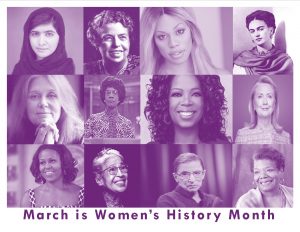
No doubt the media are rife with information on women in science, literature, politics, business—you name it. But today I want to focus on my personal history, and the crucial role played by my paternal grandmother. Granny was a thriver—which is to say, she did a whole lot more than just survive hard times, grief, and heartache.
Margaret Louisa Butcher, the ninth of twelve children, was born on Yost Branch in Johnson County, Kentucky. She quickly became “Lucy” because that’s what her siblings made of her name.
By the time I came along, she was long married and officially Lucy Butcher Parker. She’d married Allie Howard Parker and they lived at the head of Old House Creek in Rowan County, Kentucky. This is a picture taken there of Granny Parker, my father, Great-granny Butcher, and me.
The Old Home Place (as everyone in the family called it) was four rooms and two porches. The front porch was for rocking, swinging, and whatever household work could be taken outside. The back porch was for churning butter and washing clothes. Eventually there was a wringer washer, but before that it was a washboard and two tubs. The house had electricity by the time I knew it, but no running water or indoor plumbing of any sort. The well was in the backyard and the outhouse sat over a little tributary to Old House Creek. Granny cooked on a cast iron, wood-burning stove and two of the other rooms were heated with potbellied wood/coal burning stoves, similar to those pictured below. Cornbread and biscuits were staples.
I used to play on the stacked wood behind the kitchen stove. On the wall above me were strings of dried apple rings and leather britches beans (dried green beans).
One time I sneaked a snack of dried apple and it tasted so good I ate the whole string. Then, being really thirsty, I drank dipper after dipper of well water. As the apples rehydrated in my stomach, I thought I was going to burst and hurt something awful. Granny didn’t punish me for the apples. She said the apples would punish me for her. Once the stomach ache passed, I had diarrhea so bad I had to run to the outhouse again and again.
Granny had a vegetable garden, chickens, and milk cows. She churned her own butter and sold some of it to the general store out on the highway. I sometimes helped churn, though I didn’t have the stamina to do the whole job. The churning rhyme was to help keep the rhythm smooth, moving the dasher up and down word by word.
Churn, butter, churn.
Churn, butter, churn.
Johnny stands at the gate
Waiting for a butter cake.
Churn, butter, churn.
According to my Aunt Mary, my father’s younger sister, the VA Hospital sent Grandpa Parker home in early 1933 to die because they couldn’t cure his illness. (I assume this was a lung problem. He was a coal miner in his earlier years, before being gassed in WWI). He didn’t die, but while he recovered, Granny and the children struggled to get by. Mary and my dad set traps for fur-bearing animals as a way to make money in the late 30s and early 40s. They also raised, dried, shelled, and shipped popcorn to try to make a few dollars, as well as picked blackberries for five cents a gallon. They shelled corn for a neighbor to take to the gristmill. They saved the inner husks from dried corn to use for filling like feathers for a feather bed.
Granny had a hard life—perhaps not by Appalachian standards of the time, but certainly by my standards. All of her children were born at home, sitting on Grandpa’s lap, his knees spread to make a birthing chair. Her widowed mother, Granny Butcher, spent nearly all of her last seventeen years living with Grandpa and Granny. I’m told Granny Butcher was a kind, gentle woman, but by the time I knew her, she was old and nearly blind.
Still, she did what she could to help—snapping beans, shelling peas, churning, and the like. Granny Parker nursed her through her last decline, and did the same for Grandpa.
What I most remember about Granny Parker—besides her never-ending work—was her laugh. She loved a good joke or humorous stories. I don’t ever remember Granny complaining. She read the Bible every day and Reader’s Digest as often as it came. She encouraged me to do all I could, as well as I could. I grew up wanting to be like her: strong, capable, self-sufficient.
Granny always made quilts. I have several of her quilts, and have passed some along to my children.
As a widow, she continued to make and sell quilts. I thought that her life was pretty much as it always had been until she sent me this newspaper clipping.
By then Granny had a phone and I called her. “Do you mean you never had a high school diploma? Didn’t you teach school before you got married?”
She said, “No, I never had a diploma. Don’t you remember me telling you that I was licensed to teach by examination? I was in the first group that had to go to Frankfort to be tested.”
And the next thing I knew, she had enrolled in college! Granny never learned to drive, so she had to plan her classes around the bus schedule and when she could get a ride.
I saw Granny shortly before she died at age 83. I asked her whether, if she had it to do over again, she would change anything about her life. I expected her to say something about how her life might have been made easier. What she did say was, “The only thing I regret is that I’m a junior and won’t live long enough to get my college diploma.”
Recently I’ve been revisiting the Foxfire Books. They reflect much of my Appalachian childhood. Right now I’m reading Aunt Arie: A Foxfire Portrait. She reminds me of Granny Parker.
During this Women’s History Month, do consider the important women in your history. And let me know about them!
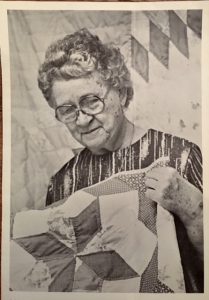
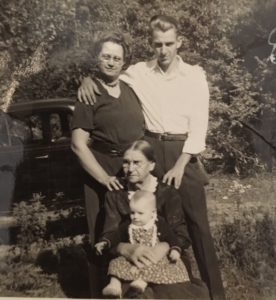
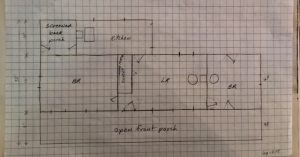
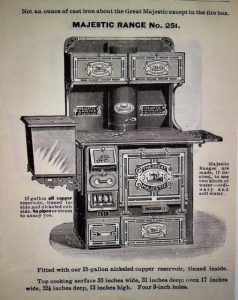
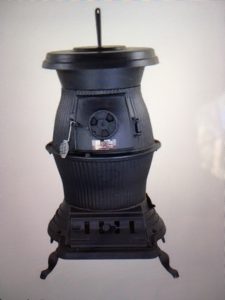
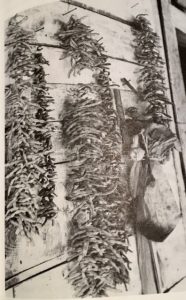
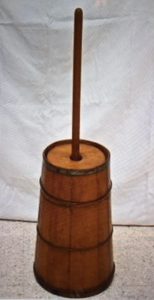
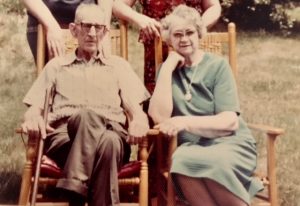
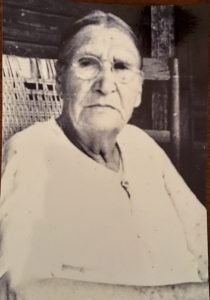
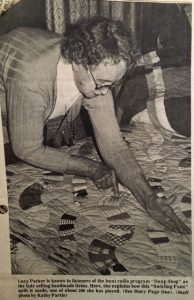
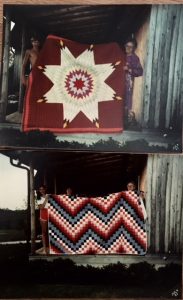
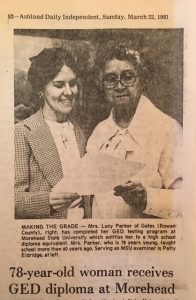
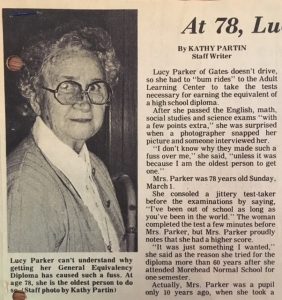
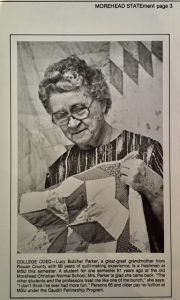
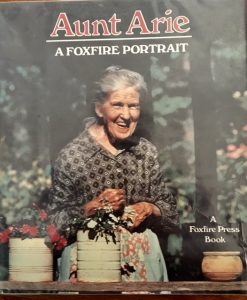
The only corrections or changes I would make are: Nora helped John set traps, I wasn’t born until 1940; and Mother passed away at age 81.
It is a lovely blog and fitting tribute to my mother! She attended Morehead State University when it was Morehead Normal School, where she studied to become a teacher and then took the state board exam.
Great article. She is my grandmother and remembered with love!
Hey, Hobie,
I’m so glad you liked it! How did you come across a post from 2018?
Thanks for reading , and thanks for commenting. I often don’t know whether or how many people are reading my blogs.
Vivian